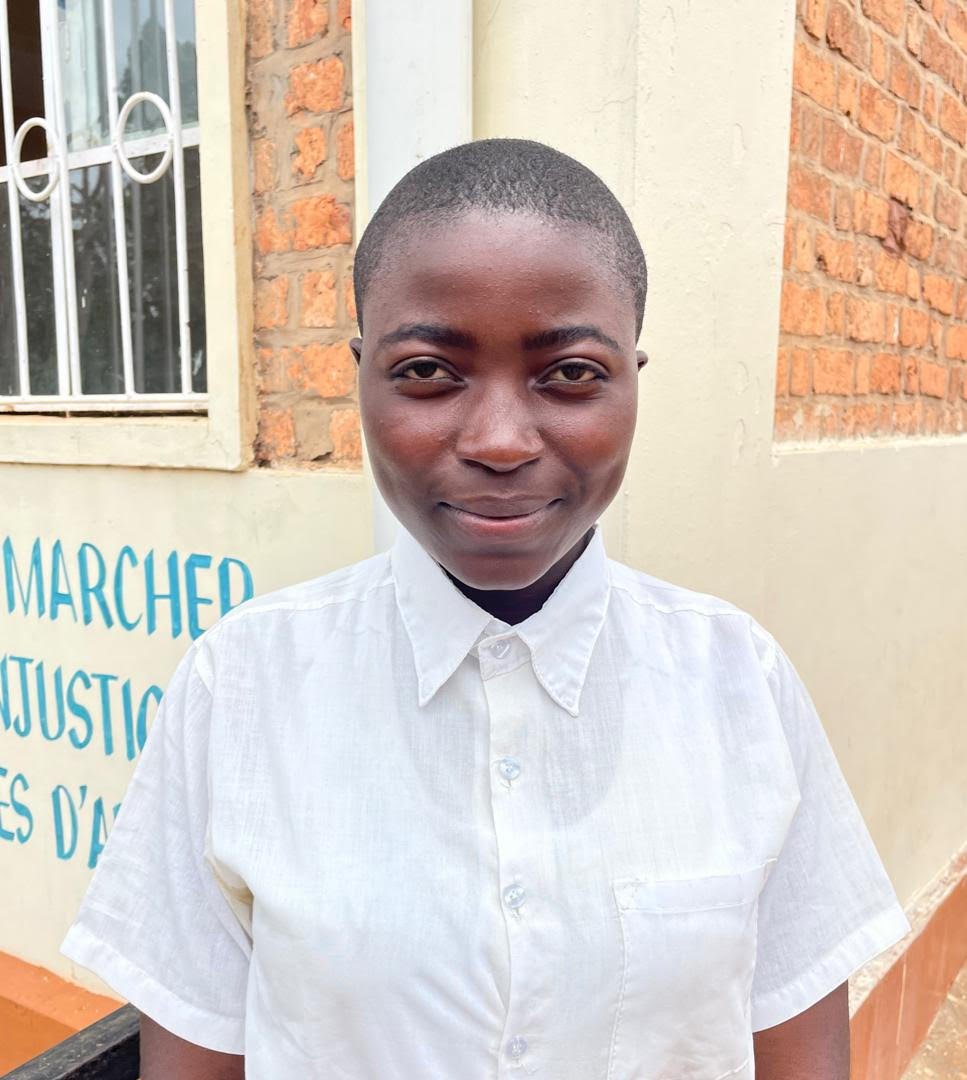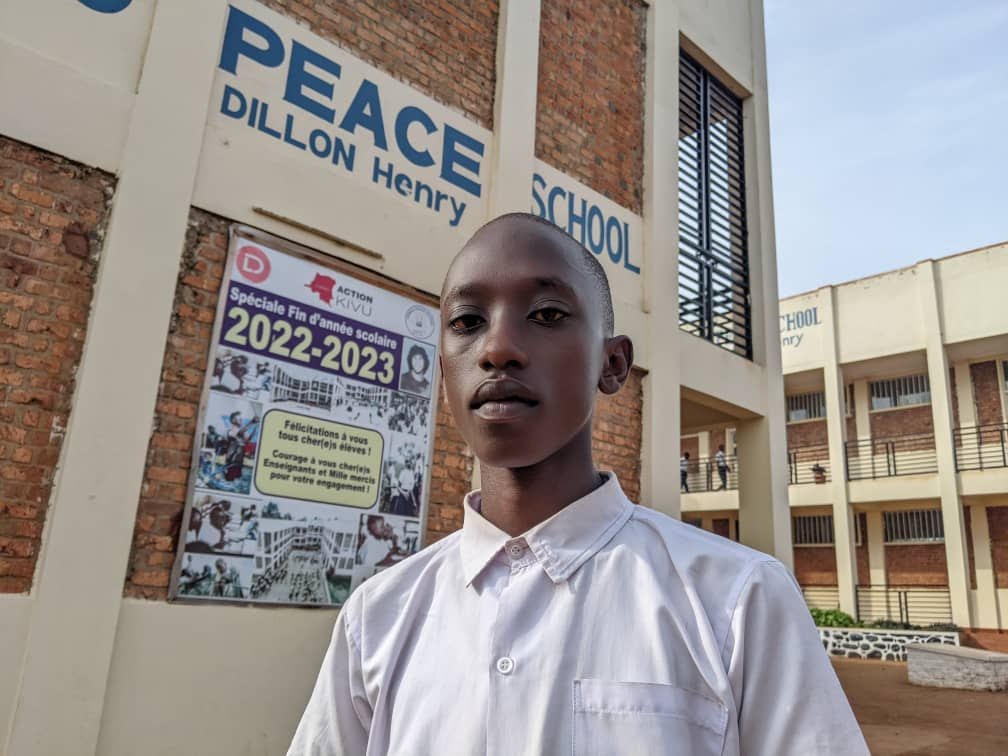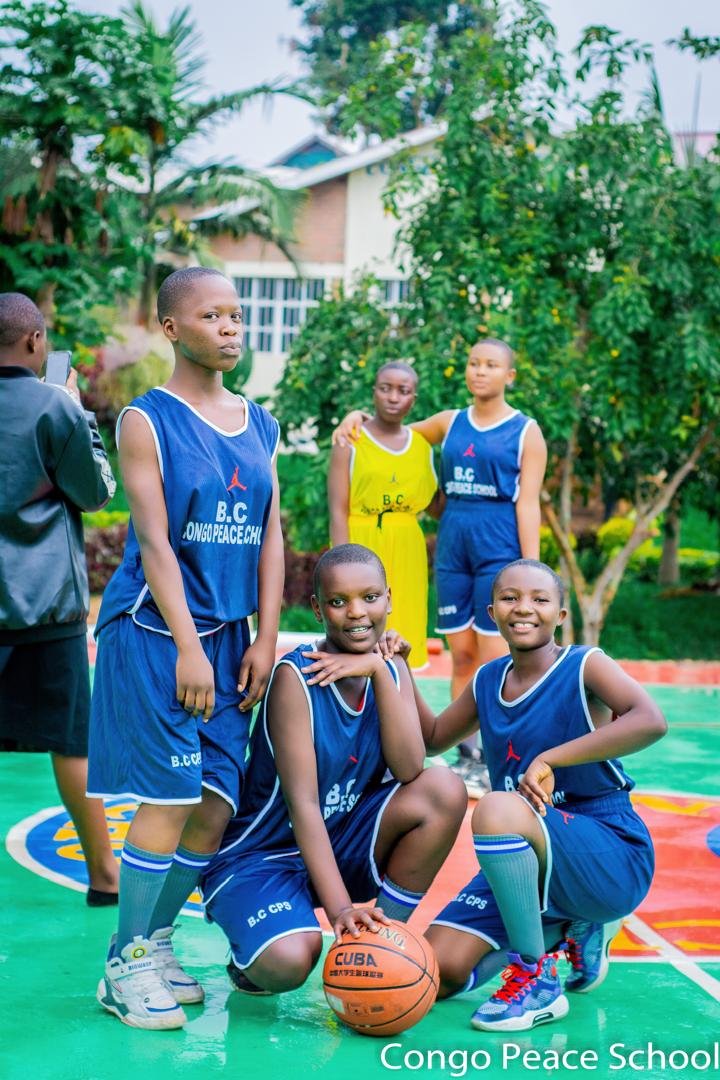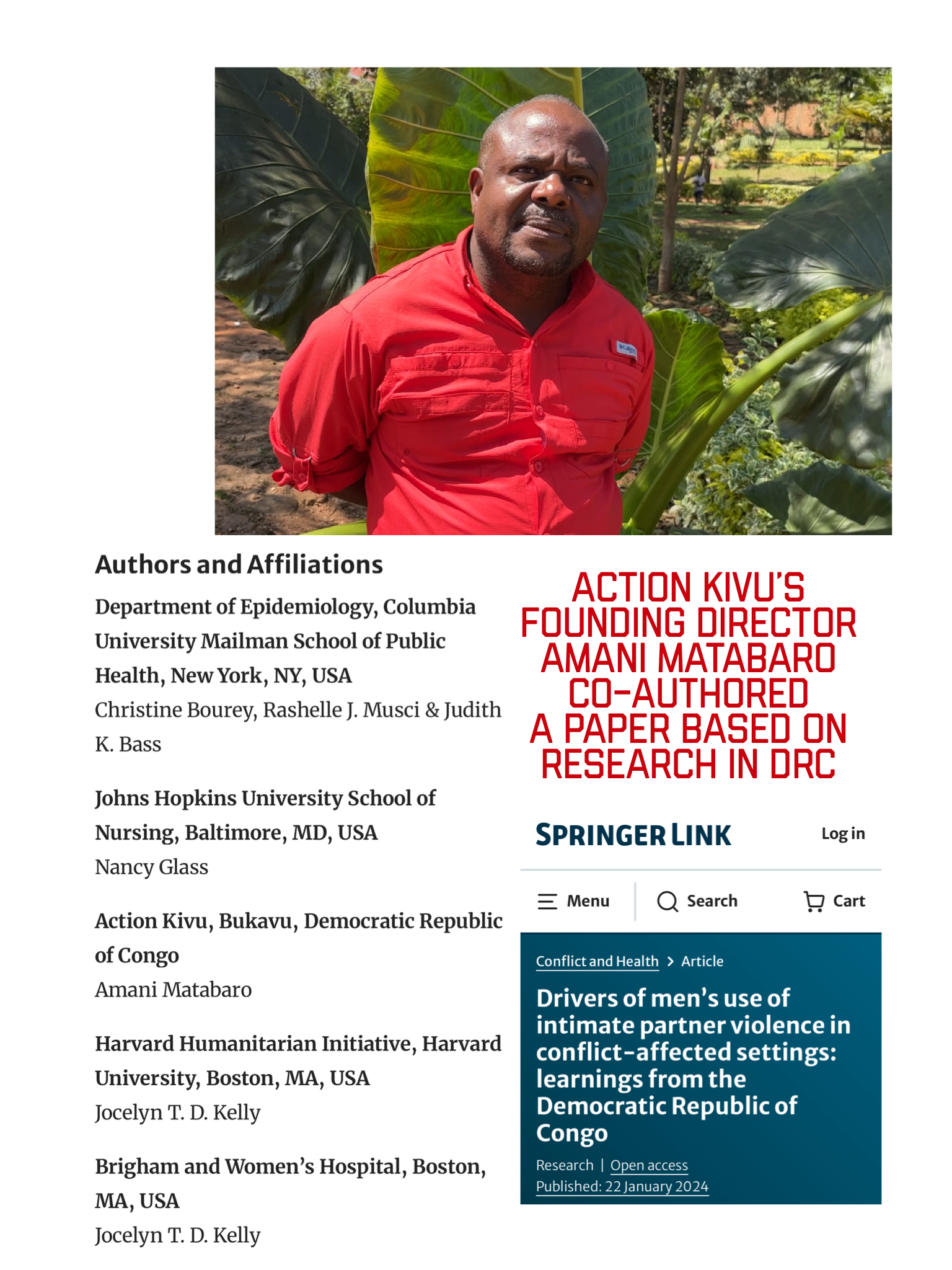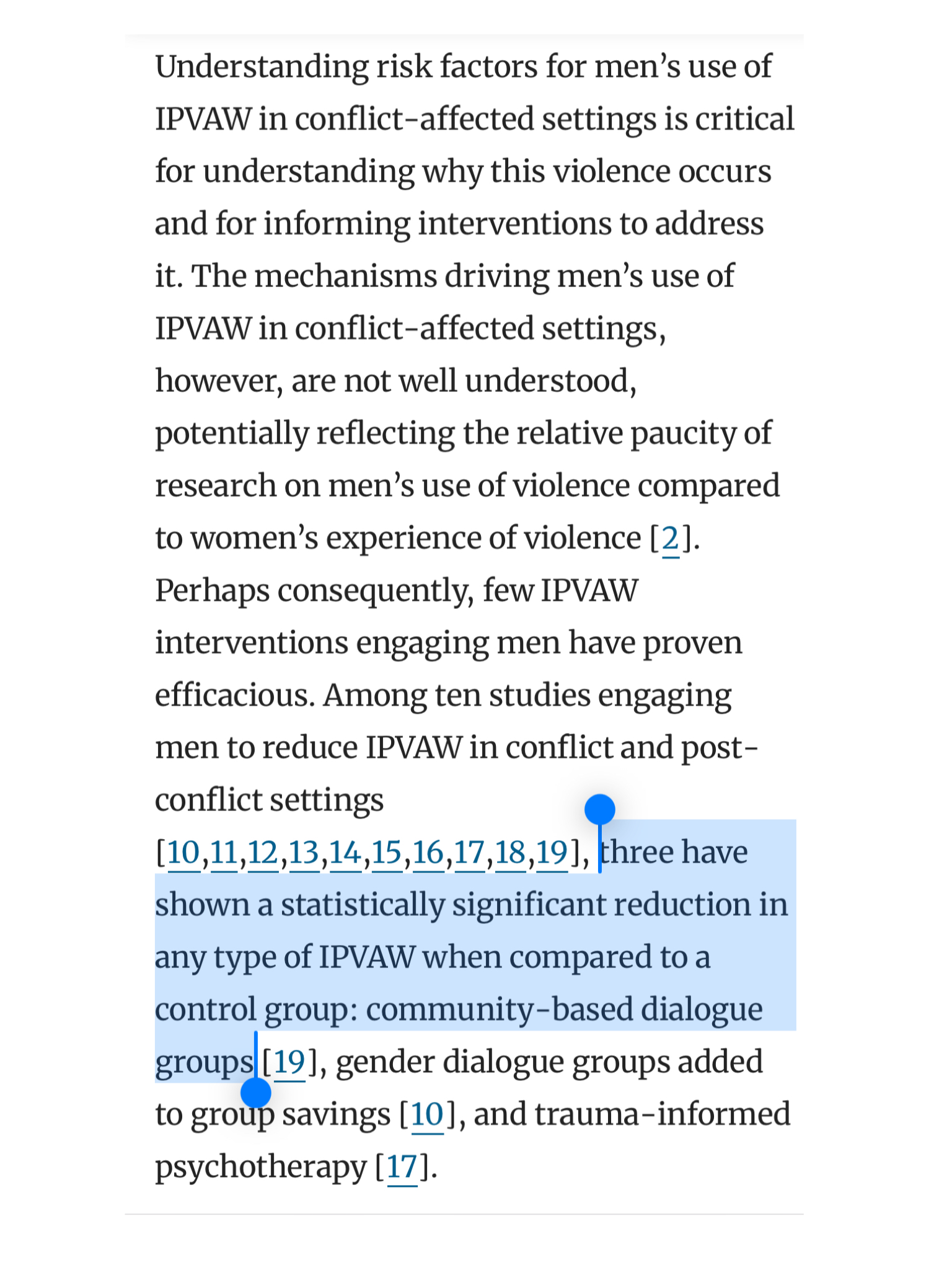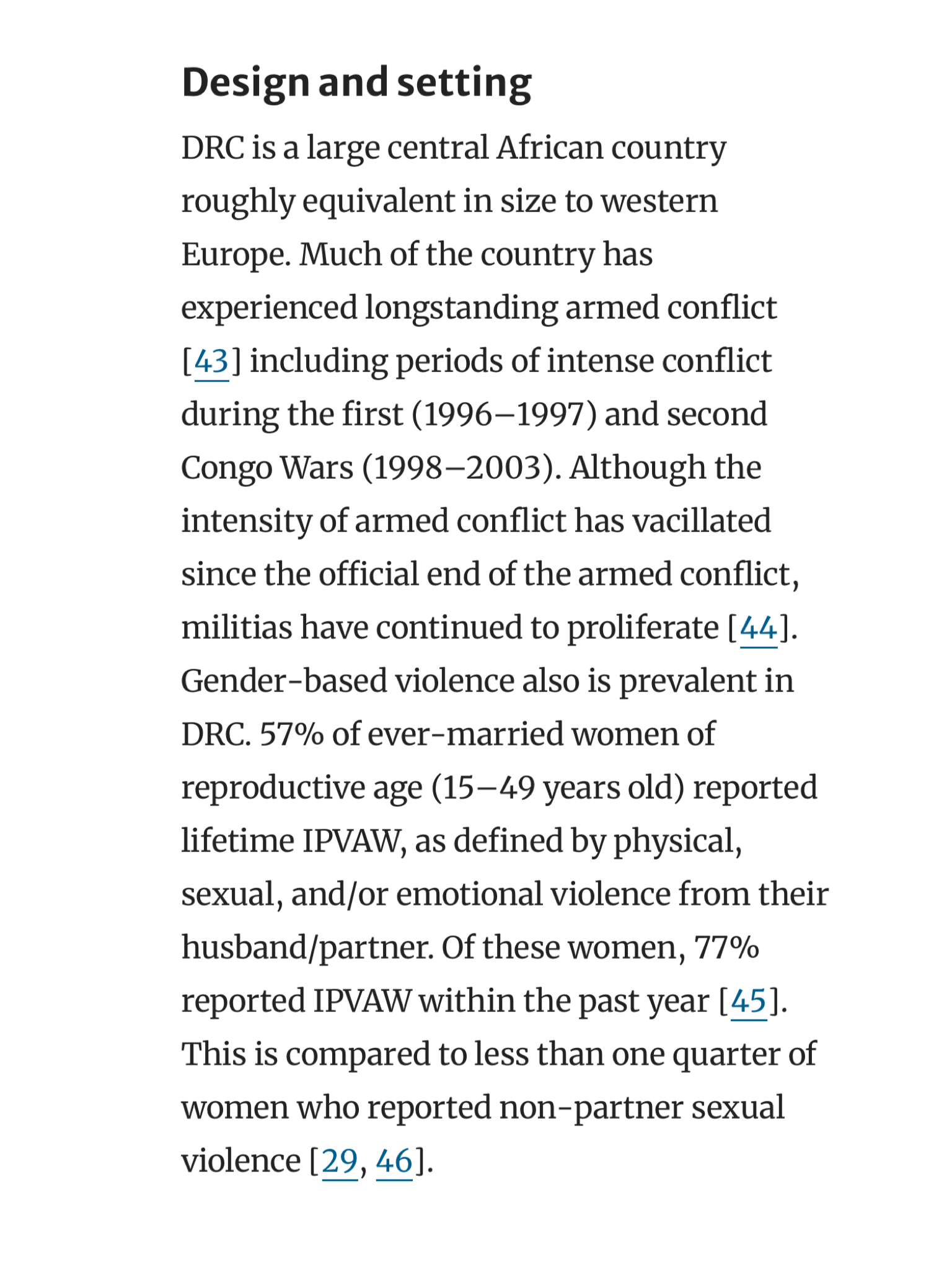Spring – the word and the season of the year associated with it – brings to mind the concepts of renewal and growth, rebirth, and motion: to spring into action. A spring is a place where water emerges, bubbling up from the ground, possibly the source of a stream or river.
This spring at the Congo Peace School [CPS] was burbling over with activity – from the continued learning and putting into practices the principles of positive peace and nonviolence to celebrating Women’s History Month and what that means in the current context of women’s and girls’ equality to breaking in a brand-new basketball court on campus with an inaugural practice for the girls’ team led by a local coach.
Aerial view of the Congo Peace School with new basketball court
All of this is taking place under the heavy cloud of war. Eastern Congo, long a place of armed violence, has erupted into greater war over the last year, fueled by the region’s abundance of the minerals the world needs for our laptops, phones, EVs, planes, and move to renewable energy. These blood minerals are mined in dangerous, inhumane conditions by the Congolese, mines often using child laborers or people paid extremely low sums for the tin, tantalum, tungsten, gold, and cobalt that fuel all our futures. The school is in South Kivu and in an area thankfully with no mines, so relatively peaceful, but the trauma of being surrounded by war takes it toll daily in the lives of the students and staff, and the Peace School campus and community values are a safe haven for all.
What we see springing up within the community of the Congo Peace School comes from roots reaching deep into the long history of nonviolence and human rights activism. When we talk about the root causes of violence – violence from armed group and state-sponsored armies, we also talk about the violence in our language and actions. We ask, how can we disrupt that tangled and dangerous root system to instead plant and tend to a different way of life, living in peace with our thoughts, with each other, and with our planet?
NONVIOLENCE: This spring, the students studied Dr. Martin Luther King’s fifth principle of nonviolence:
Nonviolence Chooses Love Instead of Hate
Together, the Congo Peace School teachers and students examine this concept in more detail, that nonviolent resistance not only seeks to avoid the use of physical or external violence, it also concerns our inner being. It consists of refusing hatred and living according to principles based on love. We must break the vicious circle of hatred and violence and rediscover human fraternity. The person who harms me first harms themselves.
While our Founding Director Amani Matabaro is in Boston for his fellowship at Harvard, our interim Peace School Director Israel and the school principal Deo spoke to several of the students about how they internalized this fifth principle and can see it playing out in their daily lives.
Bernadette said, “If I look at my personal life in relation to this principle, I was resentful towards my father who had abandoned me at a young age, saying that he is not my father. But because of this principle, I have forgiven him and firmly believe that God will continue to provide my mother with the means for me to continue to attend the Congo Peace School. Because of the forgiveness granted to people I feel psychologically at ease. Can Do, the first book that I read at the school library, inspired me that if I always forgive I will have integrity and hope for the future.”
When asked if she sees this principle changing her daily life, Bernadette shared, “Yes, I have it because when I used to see my father passing by with his friends, I couldn't greet him because of the hatred I had towards him. But today I greet him so well that he doesn't recognize me as his daughter.
At school, she says, “I’m starting to laugh with my fellow students, I feel at ease since I’ve had this principle, like a mystery of forgiveness and love.”
Divine thinks you should avoid hating people and avoid verbal violence. “I know that extremists have caused us harm but because of this 5th principle I cannot take revenge. I know that FORGIVENESS is a cure for the psychological scar that my family and I have received.”
Divine says that this principle changed his way of life. He could not speak in class but now he is a courteous, honest and gifted student in the class - he no longer has any problems because he feels accepted by his fellow students and actively participates in school activities.
WOMEN’S HISTORY & EQUALITY: In March, the Peace School celebrated Women’s History Month with a day of activities inviting the students and community from surrounding areas to engage in conversations and theatre pieces performed by Congo Peace School students that centered on the rights of women presented to raise awareness and educate the community on the needed shift from the traditional customs and beliefs that deny women's rights at the community level. A conference was held in the school’s auditorium on the increasing needs of girls’ and women's participation in peace for an equal Congo. Many of the girls and women wore black, mourning the escalating violence and deaths of the ongoing war there. The speaker of the day was Odile Bapolisi, a women’s right activist and a lawyer working in nearby Bukavu, and Ansima, a recent college graduate with a law degree and Amani Matabaro’s daughter, spoke about the day’s events with a local radio station, broadcasting the message of equality and women’s rights around the region.
Photo by Blaise Mwema
Aminata, the younger sister of Rosalie who was in our first graduating class last year, spoke at the conference. Aminata was very young when both her parents died from AIDS. Today she is an inspiration to other girls to speak in public about equality.
BASKETBALL COURT: BC Congo Peace School was born this spring! Thanks to the generosity of our CPS founding partner The Dillon Henry Foundation and its leader Harriet Zaretsky and her community of supporters, we were able to install an outdoor basketball court, one of the only courts in the region. Basketball was requested specifically by the girls of the student body, and they were thrilled to don their uniforms and play for the first time with basketballs.
(Photo by Blaise Mwema)
(Photo by Blaise Mwema)
(Photo by Blaise Mwema)
Spring is also a time where we often see new life exploring the world, wobbly fawns testing their legs, ducklings following their mother, and like all of us learning any new thing, the girls engaged in the sometimes goofy-looking play of newness on the court.
There is so much hope being rooted into the region thanks to the core values being taught and embodied at the Peace School: from the seeds planted we are witnessing a growing network of roots of living in peace, equality, and nonviolence. We thank you for making this possible with your financial support.
Please share this post with others to spread the hope and our mission to create more peace through education rooted in nonviolence and equality.



